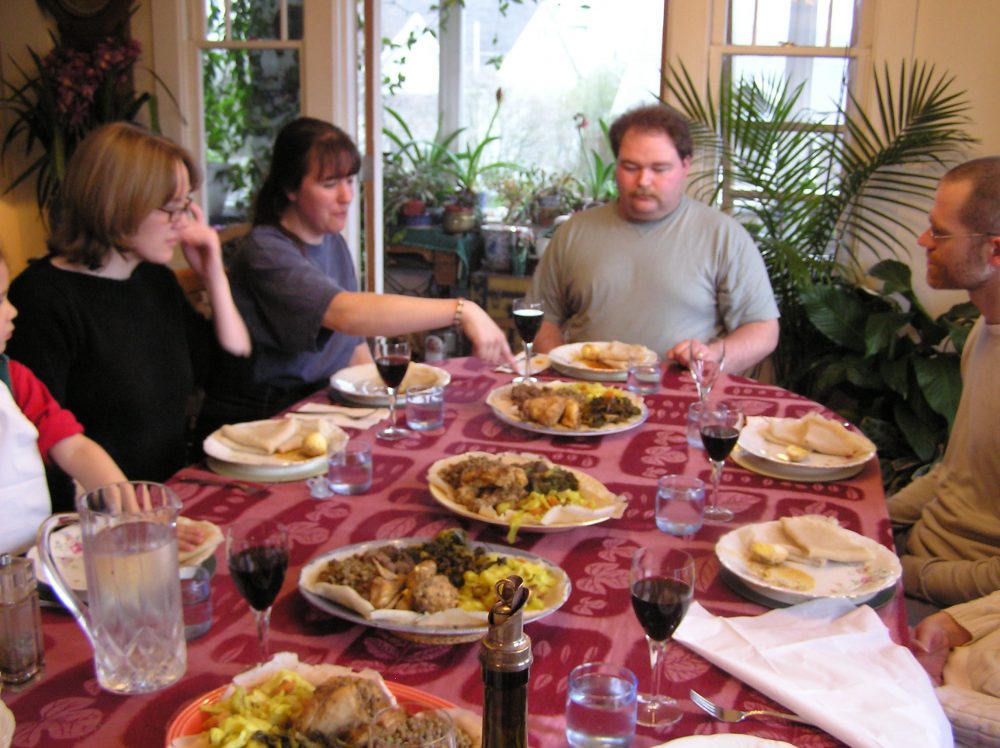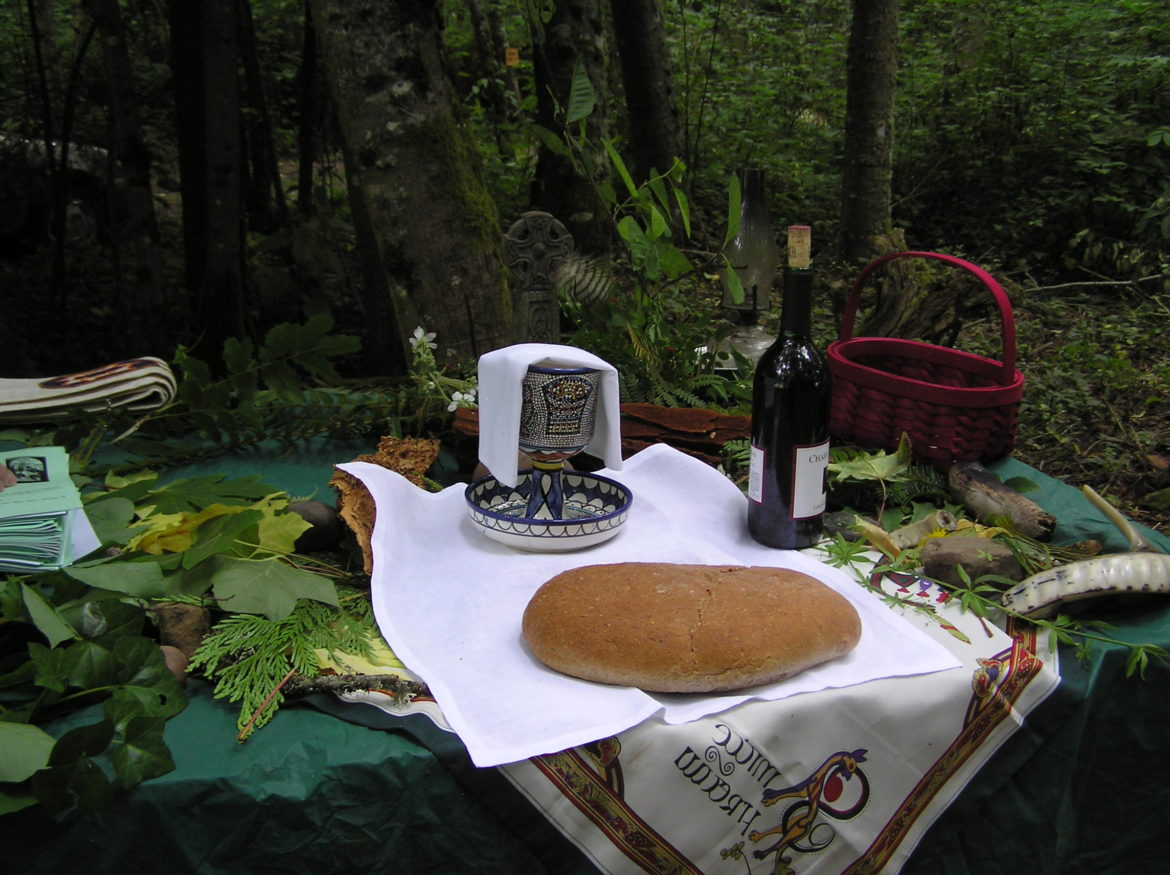by Christine Sine, as originally published here
Tom and I are back from our retreat time. My reading for our days away included part of Norman Wirzba’s wonderful book Food and Faith: A Theology of Eating. I have been reflecting on the meaning of communion and thought and his comment:
Eating is about extending hospitality and making room for others to find life by sharing in our own…. Eating is an invitation to enter into communion and be reconciled with each other. To eat with God at the table is to eat with the aim of healing and celebrating the memberships of creation…. Food is a gift to be gratefully received and generously shared. (11)
Reflecting on this statement has brought back many memories for me of meals shared and friendships forged. Hospitality has become one of the most important aspects of my life and will as many of you know be the central theme for sharing on this blog over the next few months.

Enjoying Ethiopian meal at the Mustard Seed House
I still remember vividly when, several years ago, our good friends Melody and Gil George cooked a wonderful Ethiopian meal for us. The delicious hot and spicy sauces were spooned onto platters spread with layers of the Ethiopian flatbread injera. More mounds of injera dotted the table waiting for us to tear off pieces with our fingers so that we could scoop up the wonderful berbere flavoured wots. By the end of the meal all that remained on the platter were broken pieces of injera soaked with the remains of the sauces.
As we gathered the empty platters I was struck by how much this meal must have resembled meals Jesus ate with his disciples and those other friends of his – the tax collectors and prostitutes. Bread was far more than an adjunct to their meals, it was the very heart of their shared life together. The bread was broken so that people could share together the nourishment they needed to sustain life. And as the bread was broken there was implicit in the act, a sharing of hospitality, of togetherness and of community. Anybody who ate from their table, friend or stranger, rich or poor, young or old would enter into this shared community.
I was suddenly overwhelmed by the feeling that in eating together in this way we had shared in the communion of Christ’s body.
Contrast this to a church I was in recently in which the elements of the Eucharist were passed around in prepackaged sterile containers filled with a wafer of bread and a sip of grape juice. The only experience we shared together were those sounds we made as we ripped the covers off the communion elements. And even those were muted by our embarrassment at disturbing the quiet atmosphere of the moment. No wonder the congregation hurried away afterward with barely a thought for those with whom they had shared the pews.
I wonder how much we limit the celebration of our faith by partaking of the bread and the wine of communion in a sterile environment that disconnects us from the enjoyment of God in the midst of everyday life? For most of us, the celebration of the bread and the wine of the Eucharist no longer draws us into the wonder of communion with Christ and the intimacy of enjoying his presence in all of life’s celebrations and struggles. In fact, often it disconnects us.
I love Sara Miles’ book Take This Bread, in which she too grapples with the meaning of communion in the midst of everyday life. “It wasn’t a private meal,” she reflects.
“The bread on that Table had to be shared with everyone in order for me to really taste it. And sharing it meant I was going to be touching Christ’s body at St Gregory’s… Looking into Christ’s eyes outside the church through the cheery yuppie with the sports car and the veiled Muslim clerk at Walgreens. Listening to Christ’s voice in other churches… I was going to get communion, whether I wanted it or not, with people I didn’t necessarily like.” (97)
For the early church, communion was about celebrating the great feast of life together, not just with each other but also with God who gave this gift of life to all who shared in the meal. Hospitality was central to faith because was a reminder of the fact that in the sharing of food Christ was present in our midst. More than that, as all sat down together the barriers between rich and poor, slave and free, male and female were dissolved. The sharing of meal opened a doorway to the wonders of God’s eternal world in which we will one day all feast together at the great banquet celebration of God.
I think it is time we rediscovered the true hope and celebration of communion as it was understood by early followers of Christ. What a wonderful hope we look forward to every time we share a meal and take time to recognize that Christ sits down at the table with us. As we pass round the food it is his life that we are sharing. It is his life that nourishes our bodies and our spirits, drawing us together into a community of love and mutual care in which once more all barriers are broken down and we share together of the abundance and shalom of God’s kingdom.
As an Amazon Associate I receive a small amount for purchases made through appropriate links. Thank you for supporting Godspace in this way.
 Next Facebook Live – TOMORROW!
Next Facebook Live – TOMORROW!
Join Christine Sine and Andy Wade for a discussion on Hospitality in the Garden – Tomorrow! Wednesday, August 17th at 9 am PT. Happening live in the Godspace Light Community Group on Facebook – but if you can’t catch the live discussion, you can catch up later on YouTube!

